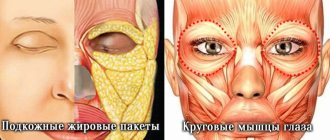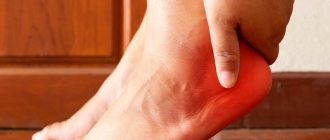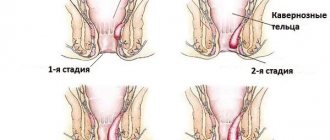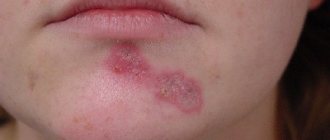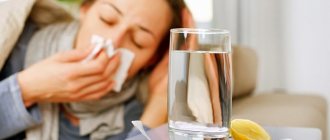When a person realizes that all the symptoms of indigestion are present, and this, of course, is very inappropriate, he asks the question “How to quickly stop diarrhea?” You need a remedy that will stop diarrhea in the shortest possible time so that you can once again live a full life.
However, before you run to the pharmacy for a remedy that can quickly stop diarrhea, you need to understand that malaise can arise for various reasons, which means that different medications should be used for treatment. Let's determine the main causes of diarrhea.
What is diarrhea in an adult?
Constant diarrhea in an adult is a symptom with the passage of unformed stool more than 6 times a day, exceeding the dose of 300-400 mg .
The process of fermentation in the intestines is observed against the background of the development of pathogenic microflora (intestinal invasions), which rapidly multiply, creating entire colonies with the sucking of minerals and useful components from the intestinal walls, causing dysbiosis.
If diarrhea in an adult does not go away, the condition does not stabilize after 3 days in a row, then dehydration can occur in a matter of hours, when urgent measures will have to be taken to replenish the body with nutritional components, normalize the water-salt balance in order to avoid serious complications.
Carrot
Carrot puree
Carrot soup is a reliable way to combat diarrhea. The puree soup will help maintain hydration, restore the balance of intestinal microflora, and fill the body with certain minerals such as sodium, potassium, calcium and sulfur.
The recipe is simple: 3 carrots + 4 glasses of water (1 liter).
● peel the vegetables and cut into small pieces,
● bring water to a boil, add carrots and a pinch of salt,
● cook until the carrots are softened,
● beat the boiled vegetables with a kitchen mixer or using a blender until creamy.
● eat it hot.
Causes
There can be many reasons leading to a change in the composition of the microflora of the large intestine and the leaching of beneficial bacteria.
The main causes of diarrhea in adults:
- stress;
- hunger, overeating;
- infection of the intestinal cavity by invasions of parasitic bacterial and viral origin;
- diseases of the stomach, intestines (gastritis , ulcers, colitis, enterocolitis , pancreatitis);
- poisoning with poisonous berries, mushrooms, mercury, chemicals;
- abuse of medications (antibiotics);
- food poisoning due to ingestion of stale, lost food;
- hyperthyroidism with excessive activity of the thyroid gland with the production of thyroxine in large quantities;
- Crohn's disease;
- malabsorption syndrome;
- impaired absorption of electrolytes;
- radiochemistry (irradiation), provoking dysbiosis of the intestinal mucosa, impaired absorption of beneficial components;
- immunodeficiency;
- damage by parasitic infestations (salmonella , shigella , lamblia , worms);
- bear disease with development in adult men against the background of abuse of probiotics, antibiotics with modification of healthy flora in the intestines;
- vegetative-vascular dystonia;
- cholelithiasis;
- fermentopathy;
- individual intolerance to certain products;
- oncology;
- autoimmune diseases (skin diseases in humans of an autoimmune nature (dermatosis) , rheumatoid arthritis , lupus erythematosus).
Provoking factors for diarrhea in adults
Most often, diarrhea in adults is caused by intestinal damage due to an acute viral infection (giardia , roundworm , woodlice, enterovirus , salmonella).
As infections accumulate in the walls of the large intestine, they lead to modifications in the composition of the microflora and the development of serious pathogenic diseases.
The following medications can cause diarrhea in adults:
- laxatives;
- anticholinesterase;
- antibiotics;
- probiotics;
- cytostatics leading to digestive upset.
If there is diarrhea without fever in an adult, then the reason for the acceleration of intestinal motility lies in:
- overvoltage;
- stress;
- acute appendicitis;
- hepatitis;
- overheating in the sun.
Diarrhea accompanied by additional symptoms
It is rare that when diarrhea in adults occurs against the background of gastrointestinal disorders, there are no other accompanying signs. Symptoms that are often added when diarrhea bothers you are:
- nausea, vomiting with the passage of mushy, loose stools alternating with constipation are signs of infection with intestinal invasions, a consequence of intoxication (poisoning) of the body;
- increased gas formation;
- discharge of clayey, gray feces;
- cramps, colic in the abdomen - a sign of an intestinal infection;
- temperature increase +37.5 g with acute appendicitis;
- headache;
- weakness;
- discharge of greenish-brown stool with mucus, blood, temperature rise above +38 degrees with salmonellosis;
- the appearance of black liquid stool with bleeding is a sign of Crohn's disease, stomach ulcers;
- muscle weakness, decreased vision, constipation accompanied by diarrhea, passing stool more than 5 times a day - with ulcerative colitis or nonspecific ulcerative colitis (UC);
- stool with mucus (blood), passing up to 10 times a day, pain and rumbling in the abdomen, flatulence, red spots on a person, blanching (drying) of the dermis, dryness and a bitter taste in the mouth - signs of Crohn's disease.
Worth knowing! If you have colic in the lower right quadrant of the abdomen, a temperature rise above +38 degrees, or stool containing blood, you should urgently consult a doctor (gastroenterologist, proctologist). Bleeding with diarrhea may indicate a fistula , abscess, or the development of an inflammatory process. These are dangerous symptoms of intestinal disorders that cannot be ignored.
Of course, a one-time occurrence of short-term diarrhea without fever and vomiting in an adult is unlikely to cause serious harm to health. But, regardless of the nature of diarrhea, it is worth rehydrating the body, replenishing the lack of fluid, thereby maintaining the water-salt balance.
Is it possible to eat watermelon
Watermelon is fat-free and an excellent source of vitamins A, B6 and C, potassium, and plant-based antioxidants such as citrulline and lycopene.
It is due to the lycopene content that watermelon has such a rich red color. Moreover, this substance is a very strong antioxidant.
Potassium helps lower blood pressure and also has a beneficial effect on all organs. Plant citrulline has a positive effect on the cardiovascular system.
Two glasses of watermelon juice contain about 15-20 mg of lycopene.
It has been found that consuming more than 30 mg of lycopene per day can cause intestinal problems. Excessive consumption of lycopene-rich watermelon can cause nausea, vomiting, diarrhea, bloating and indigestion.
Symptoms may be more severe in older people as their digestive systems are more susceptible due to age.
www.watermelon.org
caloriebee.com
Types and stages
Doctors divide diarrhea into 2 types:
- acute with a duration of 1-3 days , the cause of which is damage by viruses (bacteria), allergies to medications, food poisoning;
- chronic with fairly prolonged diarrhea , periodically changing to remission, which indicates the development of a hidden disease (ulcerative colitis, Crohn's disease, IBS), a failure in the endocrine system.
The types are distinguished:
- diarrhea with water in an adult in case of infection of the body with viruses, bacteria with the subsequent release of toxic substances, settlement of bacteria in the intestinal walls, development of diseases (dysentery, salmonellosis);
- intoxication;
- enzymatic;
- infectious;
- medicinal;
- with bleeding;
- fatty (a common form of diarrhea, a consequence of malabsorption of food, a malfunction in the digestive system. Provoking factors are diseases of the pancreas (liver) with the inability to produce juice in the required quantity or bacterial infection);
- inflammatory (a consequence of the development of the inflammatory process in the intestinal walls, a number of diseases (Crohn's disease, nonspecific ulcer, malignant tumor, immunodeficiency);
- secretory (triggered by toxic substances, fatty acids, drugs, alcohol, cancer (carcinoma)).
- osmotic (a consequence of an increase in osmolar components in quantity with location in the lumen of the rectum. The peculiarity of this form is the passage of liquid feces even in the absence of meals, i.e. on an empty stomach. Provoking factors are IBS, the formation of a fistula in the intestine, lactase deficiency, intake some medications (cholestyramine, lactulose, magnesium sulfate, neomycin)).
Important! With profuse diarrhea accompanied by vomiting and high fever, patients are subject to urgent hospitalization. There is a high probability of infection with salmonellosis and cholera.
Diagnostics
In acute diarrhea, at the initial stage there is liquid stool and a sharp removal of electrolytes from the body. First of all, the doctor will conduct a visual examination of the skin for signs of dehydration.
With prolonged diarrhea, a decrease in turgor, dryness of the integument, a decrease in blood pressure, increased heart rate due to calcium deficiency, convulsions, and a symptom of a “muscle roll” are already visually visible.
The main indicator for making an accurate diagnosis is coprogram. Patients will also have to undergo a stool test for worm eggs if they suspect the development of an inflammatory process in the digestive tract (in the walls of the liver, pancreas), further:
- blood test (biochemical, clinical) to determine foci of inflammation, dysfunction of the pancreas (liver), leading to the development of chronic diarrhea;
- gastroscopy;
- irrigoscopy;
- Ultrasound to examine internal organs in the abdominal cavity;
- sigmoidoscopy;
- colonoscopy.
Treatment
If you are often bothered by constant bouts of diarrhea, then an integrated approach to therapeutic procedures is required. It is important to identify provoking factors, prevent the development of complications and dehydration of the body, contribute to the restoration of necessary resources, and replenishment with useful components (minerals).
Therapy for diarrhea is etiotropic with the prescription of drugs after interpretation of the results obtained, examinations performed, and identification of the causes of diarrhea. It is based on medications, with additional folk remedies.
If diarrhea is a concern, it is recommended to start treatment in adults with activated charcoal , an excellent enterosorbent with an absorbent effect. When calculating the dosage, it is important to take into account weight - 1 tablet per 10 kg of weight.
For example, if you weigh 60-70 kg, you need to drink up to 6 tablets per day with a sufficient amount of water.
It is activated carbon that perfectly binds water, covering the intestinal walls with a protective layer. But you shouldn’t be afraid of the appearance of black feces. Coal will help well with diarrhea, especially caused by eating spoiled foods.
Also, in case of food diarrhea, Linex and Bifidumbacterin to activate functions in the walls of the large intestine and normalize the proper functioning of the small intestine.
If, however, diarrhea does not go away for 3 days in a row, medications become powerless, spastic pain during bowel movements, darkening of urine, yellowing of the skin, lightheadedness, discharge of green (black) diarrhea mixed with fresh blood are observed, then these are critical symptoms requiring immediate medical attention.
IMPORTANT! If bloody diarrhea bothers you, patients need hospitalization, which is especially dangerous for children and the elderly.
Medicines are prescribed taking into account the existing symptoms in adults. So, with watery stools, the goal is to prevent dehydration and restore water and electrolyte balance. As first aid:
- solutions (Uralite, Hydrolyte);
- painkillers (No-spa, Loperamide).
When developing treatment, the etiology of the origin of diarrhea is taken into account, so self-medication is excluded. You should not rashly take unknown drugs without a prescription from a specialist.
- For diarrhea caused by pathogenic bacteria, the main prescriptions are synthetic antimicrobial drugs and antibiotics ( Ciprofloxacin, Ofloxacin, Trimoxazole ).
- For the enzymatic type of diarrhea, enzymatic agents are used.
- For an infectious form - sorbents, antibiotics, antiseptics.
- For IBS and chronic intestinal diseases - anti-inflammatory (glucocorticoid) drugs.
- For diarrhea with bleeding - antiulcer drugs, hemostatic agents, infusions.
- For intestinal infections - antimicrobial drugs, enterosorbents to remove harmful poisons and toxins from the body.
"First aid" for intestinal upset
While the cause of the intestinal disorder has not been reliably determined, the following will help alleviate the patient’s condition:
- drinking plenty of water;
- diet. Until the cause of diarrhea is determined, it is recommended to limit food intake as much as possible. You can eat viscous porridge, steamed or boiled lean meat;
- enterosorbents are substances that absorb toxins, poisons, irritants from the gastrointestinal tract and remove them out. Universal medicines for stomach and intestinal upsets - Polysorb, Enterosgel, Algisorb, Pektovit, Colistyramine, Smecta, Polyphepan, activated (black tablets) and white coal. For the intestines, there is no difference between black and white coal; both drugs are safe and effective. The only difference is that white coal adsorbs toxins more actively, so you need to drink much less of it (2-4 capsules of “white” versus 6-8 tablets of “black”).
For example, you can drink Regidron and activated carbon. But there is no need to rush into taking antidiarrheal drugs. If diarrhea is caused by poisoning or intoxication, you must first remove the harmful substance from the body, and then begin to deal with frequent bowel movements. If you stop diarrhea earlier, the harmful substances will be completely absorbed into the blood, and it will only get worse.
Figure 6 - Activated carbon - the most famous fighter against intestinal disorders
Alternative home treatments
Traditional alternative treatment at home should not be the basis, although it can be a good addition to consolidate the results.
Important! You should not self-medicate, especially with bloody diarrhea with vomiting. You need to see a doctor.
Effective folk methods to cure diarrhea:
- Chicken gizzards for diarrhea accompanied by bleeding. Dry the inner shells, grind into powder, take 5 g 3 times a day with still water.
- Chamomile (dried inflorescences), 2 tbsp. pour boiling water (1 glass), leave for 3 hours, take 40-50 ml 3-4 times a day.
- Herbal collection. Comfrey, cinquefoil erect, shepherd's purse, snake knotweed, burnet mixed. 2 tbsp. pour boiling water (1 cup), leave for 1 hour. Take 20-30 ml 3 times a day.
- Infuse walnuts (200 mg) in alcohol (200 ml) in a dark place for 72 hours. Take 5-6 drops as a tincture twice a day, diluted with still water (50 ml).
- Wormwood for diarrhea is an excellent remedy, the main thing is not to exceed the dosage. 1 tsp dry herbs, pour boiling water (1 glass), leave for 0.5 hours, drink 1 tbsp before meals 40 minutes before meals. 2 times a day.
- Dill seed is a carminative for diarrhea like dill water. Pour boiling water, leave and drink for colic or intestinal pain. Can be given to infants from 3 months as an anti-inflammatory agent to accelerate the removal of gases from the intestines and replenish water.
- Grind carrot seeds into powder in a coffee grinder, take 1 teaspoon 3 times a day until the discomfort in the intestines goes away completely.
Reference! Melissa is an indispensable remedy for gastrointestinal diseases to relieve spasms and attacks of flatulence, normalize metabolism, and improve appetite. Contains flavonoids, tanning components, resins. They will quickly relieve spasms and inflammation. Garlic also has a wound-healing and antiseptic effect. Why it is enough to eat 1 clove on an empty stomach 2 times a day. Treatment of diarrhea in adults is carried out for up to 10-12 days.
Nutrition and supplements
Foods for diarrhea can speed up the healing process, have an irritating effect on intestinal motility or, conversely, have a laxative effect. Diet for diarrhea in adults plays an important role with the inclusion of raw vegetables and spices in the diet.
Diet
To quickly get rid of diarrhea, follow a special diet. Food is poorly absorbed by the gastrointestinal tract during an intestinal disorder. It is not recommended to use it for 4–6 hours. The first meal includes well-cooked rice porridge or thin oatmeal soup. A gentle diet is followed for 5–14 days. Its duration depends on the type of diarrhea.
The therapeutic diet includes porridges, broths with cereals and vegetables. On the second day, vegetable puree, steamed chicken and rabbit cutlets are introduced.
An effective remedy for treating diarrhea is the use of foods and dishes that normalize intestinal motility:
- White rice;
- baked apples;
- Hercules;
- ripe banana;
- jelly;
- crackers;
- jelly;
- potato.
Complications
Diarrhea in adults with diarrhea up to 10 times a day for more than 4 days in a row can lead to serious health problems.
Diarrhea is a sign of the development of polyposis, a cancerous tumor in the intestinal walls, and stomach ulcers. Diarrhea with water leads to the removal of vital microelements and electrolytes from the body.
The most dangerous symptoms that require urgent rehydration to replenish the body with fluid:
- long absence of urine;
- paleness (chillness) of the hands and feet;
- decreased blood pressure;
- increased heart rate;
- discharge of black feces, as a sign of intestinal bleeding, or white with water in adults with obstruction of the gallbladder (clogging with feces, development of a malignant tumor due to problems with the liver (pancreas).
In case of discharge of liquid diarrhea with blood, the cause may be a bacterial infection, hemorrhoidal bleeding in the intestinal walls.
All cells in the adult human body contain water. A deficiency leads to a failure of vital functions in the body, when the heart, brain, and bones begin to suffer.
Diarrhea is a condition that can flush out large quantities of minerals (beneficial and harmful) from the body. Before treating diarrhea, it is important to identify the factors that trigger the appearance of loose stools.
The sooner the patient begins treatment, the more positive and rapid prognosis one can hope for. This applies especially to older people, who often suffer from chronic diarrhea.
You cannot ignore it and you need to call an ambulance urgently in case of:
- darkening of urine;
- false urge to defecate;
- temperature increase over 38 degrees;
- discharge of black tarry stool with blood clots;
- sharp colic in the lower abdomen;
- indomitable vomiting with the discharge of fresh red-brown blood particles;
- confusion;
- temperature rise above 38 degrees.
What to eat after diarrhea
For diarrhea, the BRAT (Bananas, Rice, Applesauce, Toast) diet is recommended. However, you cannot eat only these foods forever.
Whether you've recently had acute gastroenteritis or are suffering from irritable bowel syndrome, at some point you'll need to expand your diet.
What can you eat after diarrhea?
Breakfast
If you start to feel better, you can take the following foods that contain more nutrients.
There is no need to limit yourself, you can use them as soon as you decide that your body is ready:
- rice flakes (dry);
- eggs (with a minimum amount of vegetable or butter);
- oatmeal or any other hot porridge;
- plain low-fat yogurt;
- rice cakes.
Dinner
As with breakfast, there is no point in limiting yourself here.
What foods can you eat if you have diarrhea?
- canned tuna (preferably with water, not oil);
- chicken bouillon;
- chicken noodle soup
- chicken fillet;
- crackers;
- ordinary noodles;
- sandwich with lean meat (chicken or turkey);
- vegetable soup.
Dinner
Your body begins to calm down and you feel like you are regaining your strength.
During dinner you can eat something more substantial like:
- potatoes (baked, mashed, steamed);
- lean meat (chicken, Indian, or steak);
- steamed vegetables.
Don't forget how important it is to replenish fluids lost during diarrhea.
The rapid passage of fecal matter through the large intestine prevents the normal absorption of water by its mucosa. This condition can lead to serious dehydration.
Good alternatives for maintaining hydration include:
- Broths;
- Herbal teas;
- Homemade electrolyte solutions;
- Pedialyte;
- Sports drinks such as Gatorade.
www.verywell.com
Prevention
In order for the intestines and stomach to function properly, you need to follow simple preventive measures:
- wash vegetables and fruits before eating;
- do not drink raw tap water;
- eat only fresh food;
- do not neglect personal hygiene;
- try to avoid taking medications (especially antibiotics) unless necessary;
- normalize your diet;
- avoid visiting public places during an epidemic of intestinal infection, get examined by doctors if unpleasant symptoms appear;
- thoroughly thermally process meat and fish.
Application of IMODIUM® Express
IMODIUM® Express affects intestinal motility and the tone of the anal sphincter, lengthens the time of passage of feces through the large intestine, reduces the secretion of water and ions, and also promotes fluid absorption. These effects are due to its effect on opiate and non-opiate receptors, a decrease in the production of prostaglandins and neurotransmitters, and blockade of peptide transporters in the intestinal wall. This versatile effect helps stop diarrhea and reduce the severity of accompanying symptoms. But in case of intoxication, you should consult a doctor before using IMODIUM® Express. After all, a decrease in the rate of movement of intestinal contents can promote increased absorption of toxins and lead to undesirable consequences.
The information in this article is for reference only and does not replace professional advice from a doctor. To make a diagnosis and prescribe treatment, consult a qualified specialist.
Forecast
Diarrhea in adults is a symptom indicating problems in the gastrointestinal tract. The prognosis is quite favorable if you prevent the development of serious complications and dehydration and take timely measures to restore the body and equip it with minerals and vitamins.
Reference! A sign of a cancerous tumor, hepatitis C is diarrhea with increasing abdominal cramps. Disease of the kidneys, heart, and liver is indicated by the discharge of diarrhea in the form of rice grains with blood and mucus. Additionally, there is vomiting, drowsiness, and apathy.
If diarrhea with water does not stop for more than 3 days in a row, then you should consult a doctor and undergo an examination. This is a sign of the development of a tumor, hepatitis C or an inflammatory process in the intestinal walls, infection with rotavirus (intestinal infection).
Timely contact with specialists for diarrhea in adults will help avoid serious consequences.
Tablets for intestinal upset
Antidiarrheal drugs (Loperamide, Phthalazol, Imodium Express, Lopedium, Stopdiar, Superilol) slow down the motility of the gastrointestinal tract, as a result of which diarrhea stops. They allow you to get rid of cramps for a while so you can get home or to the doctor. But to eliminate the cause of diarrhea, additional medications will be required, for example, in the case of a bacterial infection, antibiotics. For stomach and intestinal upsets, medications can be taken in the form of tablets or powders.
Papaverine, No-Shpa, Drotaverine, Papazol, Spazmalgon, Niaspam, Neobutin will help cope with spasm and the pain syndrome caused by it.
Tablets for stomach and intestinal upset are best taken with water or rehydration solution. Drinks that enhance peristalsis (coffee, tea, soda) are prohibited - they weaken the effect of the drugs.
Figure 7 - If you have an intestinal disorder, do not rush to take pills - first consult your doctor



